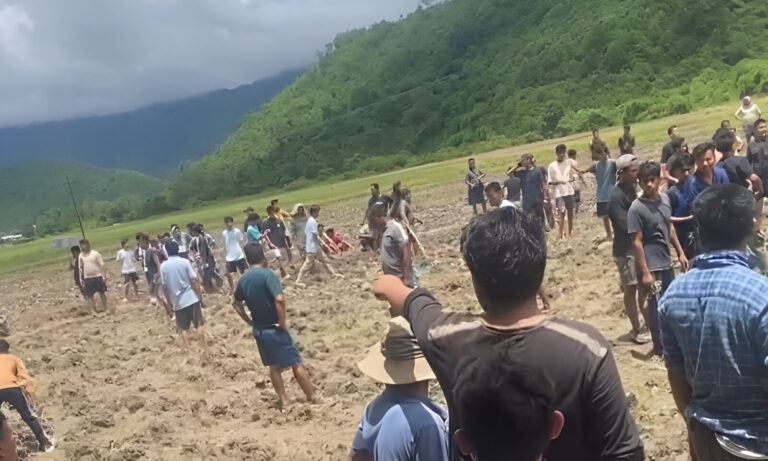The Fight Against Drugs in Manipur: A Spotlight on Poppy Cultivation
Short Summary
Manipur continues its strong action against illegal drug cultivation, with 110 acres of poppy fields destroyed recently in the Ukhrul district. This operation is part of a larger state-led war on drugs, aiming to curb the region’s rising narcotics problem. Authorities emphasized the use of advanced surveillance techniques and local collaboration to eliminate poppy farming, which has devastating social and environmental impacts.
Long Article
When you hear about narcotics and illicit drugs, you might not immediately think of the lush hills of Manipur. However, these serene landscapes have also become hotspots for illegal poppy cultivation. The state has long struggled with drug-related challenges, and the recent crackdown—destroying 110 acres of poppy fields in Ukhrul—is a testament to its commitment to solving the issue.
Why Poppy Cultivation Is a Concern
The production of poppies, the raw material for opium, has far-reaching consequences. Beyond fueling the global drug trade, it fosters addiction, especially among vulnerable populations. In Manipur, poppy cultivation also leads to deforestation, soil erosion, and environmental degradation as farmers clear forests to create fields.
The socio-economic angle adds complexity. For many cultivators, poppy farming is lucrative compared to traditional crops. However, this financial gain comes at a steep societal cost—worsening public health and fostering organized crime.
Manipur’s “War on Drugs” Campaign
Chief Minister N. Biren Singh has championed the anti-drug campaign, describing it as essential for the state’s future. The government has intensified efforts to curb poppy farming, using advanced technologies like satellite mapping and ground surveys to pinpoint cultivation areas.
In the latest operation, authorities destroyed poppy fields spread over 110 acres in Ukhrul. They confiscated tools and fertilizers used for farming and dismantled makeshift huts in the fields. These proactive measures show how determined the administration is to nip this problem in the bud
Tech Meets Tactics: How Authorities Track Poppy Fields
Manipur’s Narcotics and Affairs of Border (NAB) department employs satellite imaging and mapping to identify areas of concern. Collaboration with ISRO’s Advanced Data Processing Research Institute (ADRIN) has been pivotal in this regard. Such technology enables precise targeting, reducing the chances of missing hidden fields.
On the ground, community involvement is key. Authorities have appealed to locals to report illegal activities, emphasizing how curbing drug cultivation benefits everyone. By combining cutting-edge technology with grassroots action, Manipur’s war on drugs is a model for other regions grappling with similar issues
.
Resistance and Challenges
It hasn’t been smooth sailing. Some operations face pushback from groups that profit from drug production. In recent months, law enforcement encountered resistance from armed factions while dismantling poppy farms in other areas like Kangpokpi. Such challenges underscore the complexity of combating narcotics in conflict-prone regions
.
The Way Forward
So, how does Manipur move ahead in this battle? The state government isn’t just destroying poppy fields—it’s also promoting alternative livelihoods. Initiatives to replace poppies with high-value crops like turmeric and ginger are gaining traction. These programs aim to provide farmers with sustainable incomes while reducing reliance on illegal activities.
Education is another crucial pillar. Raising awareness about the dangers of drug addiction and the environmental impacts of poppy cultivation can help deter future generations from engaging in this trade.
What This Means for India
Manipur’s success—or failure—in its war on drugs will have national implications. The state’s proximity to the Golden Triangle, a notorious drug-trafficking hub, makes it a critical frontline in India’s broader anti-narcotics efforts.
Moreover, curbing poppy cultivation aligns with global efforts to fight drug trafficking and improve public health. The lessons learned here could influence policies in other states and even abroad.
FAQs
- Why is poppy cultivation prevalent in Manipur?
Many farmers see it as a lucrative alternative to traditional crops due to its high value in the illegal drug market. - What technologies are being used to tackle poppy cultivation?
Satellite mapping and ground surveys, often conducted in collaboration with ISRO, are key tools in identifying and destroying illegal fields. - What are the environmental impacts of poppy cultivation?
Deforestation, soil erosion, and loss of biodiversity are common consequences as forests are cleared to create farmland. - How is the government supporting farmers to switch to legal crops?
Initiatives promoting high-value crops like turmeric and ginger offer financial incentives and sustainable alternatives. - What role do locals play in this effort?
Community members are encouraged to report illegal activities, fostering collaboration between authorities and residents.


